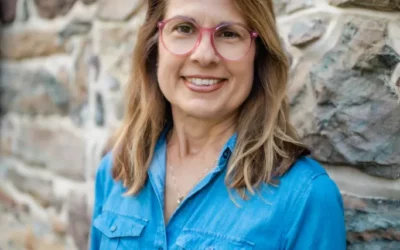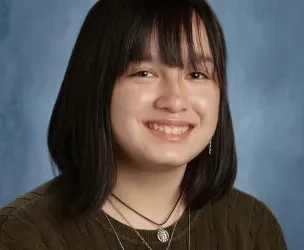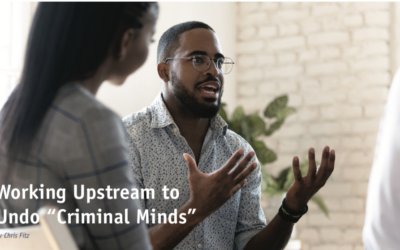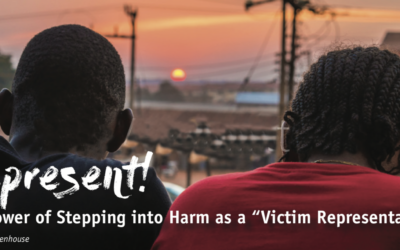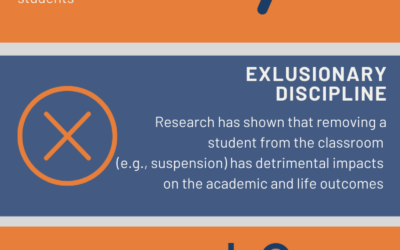
Richard Hertzler | Staff Photographer
Arun Gandhi, an Indian-American author, scholar and political activist and a grandson of Mahatma Gandhi, speaks with Chris Fitz, executive director of Advoz, after his meeting with a panel of representatives from Lancaster outside the Lancaster Marriott.
Published May 5, 2017 in Lancaster Online. Copyright © 2017 LancasterOnline. All Rights Reserved.
May 5, 2017
After listening to a diverse group of Lancaster County residents describe their community at the Lancaster Marriott at Penn Square Friday morning, Arun Gandhi said it reminded him of the story his grandfather told of the blind men and the elephant.
In that story told by Mohandas Gandhi, also known as Mahatma Gandhi, six visually impaired people felt various parts of the elephant. One who felt the legs said it was like a tree. Another who held the trunk said it was like a snake. Someone else who touched the body said it was like a wall.
To get a true picture of the animal, you need to put all of those pieces together. The same, he said, is true of a community.
Gandhi is a peace activist, author, journalist and agent of change. He founded the M.K. Gandhi Institute for Nonviolence in Rochester, New York. He visited Lancaster at the invitation of Advoz, a nonprofit agency dedicated to transforming conflict and building community through face-to-face dialogue programs. Thursday evening, he addressed 500 people at Spooky Nook Sports.
He spent Friday morning listening to 22 county residents from different backgrounds and walks of life describe their community.
Joe Moore, a member of the Lancaster Friends Meeting (Quakers), spoke of the racial, cultural and ethnic diversity in the city.
Deepa Balepur, president of the Indian Organization of Lancaster County, said members of her community have easily integrated into life here.
Mukaram Syed, a business consultant and board member of the Islamic Community Center of Lancaster, said that from the outside, Lancaster looks like a closed community, but “it has a big heart. In seven years, I have seen Lancaster’s fabric change.”
“We will dissolve into your community like the sugar in the water. I think that’s a wonderful symbol of how we should all live in a community where we enhance each other and sweeten each other by our presence.”

Richard Hertzler | Staff Photographer Dr. Arun Gandhi an Indian-American author, scholar and political activist and a grandson of Mahatma Gandhi is shown speaking to a panel of Lancaster representatives. To Gandhi’s left is Thomas Ryan, Lancasterhistory.org and at right is Leroy Hopkins, retired professor from Millersville University.
Mayor Rick Gray attributed people’s acceptance, in part, to the underlying influence of the peaceful and respectful Anabaptist community.
Others addressed the local work ethic and deep history of Lancaster — how the promise of religious freedom guaranteed by William Penn and the adherence to democratic principles have contributed to the fabric of the community.
When asked his impression of what he had heard, Gandhi quipped, “I think you have convinced me that I should move to Lancaster.”
Noting the diverse perspectives presented Friday, Gandhi referred not only to his grandfather’s story about the elephant but about Zoroastrians, who left Persia sometime between the 8th and 10th centuries and sought a home in India, which was then ruled by various kings. One king, Gandhi said, held up a full cup of water and told them that like the full cup, there was no room for them.
At that point, one of the Zoroastrian leaders took a spoon of sugar, stirred it into the water and said, “We will dissolve into your community like the sugar in the water.
“I think that’s a wonderful symbol of how we should all live in a community where we enhance each other and sweeten each other by our presence.”



 EARLE CORNELIUS
EARLE CORNELIUS

